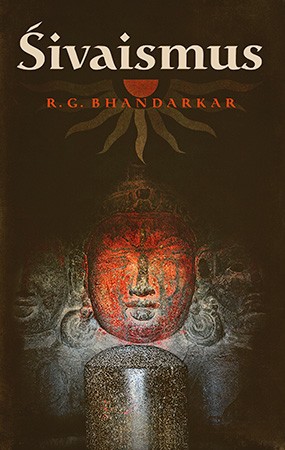Explore: Shaivism
Discover books, insights, and more — all in one place.
Learn more about Shaivism with top reads curated from trusted sources — all in one place.
AI-Generated Overview About “shaivism”:
Books Results
Source: The Open Library
The Open Library Search Results
Search results from The Open Library
1Shiva and Shakti in Indian Mythology
By Mandira Ghosh

“Shiva and Shakti in Indian Mythology” Metadata:
- Title: ➤ Shiva and Shakti in Indian Mythology
- Author: Mandira Ghosh
- Publisher: Shubhi Publications
- Publish Date: 2007
- Publish Location: Gurgaon, Haryana, India
“Shiva and Shakti in Indian Mythology” Subjects and Themes:
- Subjects: Hinduism - Shaivism - Shakta and Shakti
- Places: South India - Kailash
- Time: ancient times
Edition Identifiers:
- The Open Library ID: OL22897304M
Access and General Info:
- First Year Published: 2007
- Is Full Text Available: No
- Is The Book Public: No
- Access Status: No_ebook
Online Marketplaces
Find Shiva and Shakti in Indian Mythology at online marketplaces:
- Amazon: Audiable, Kindle and printed editions.
- Ebay: New & used books.
2Śivaismus
By R. G. Bhandarkar

“Śivaismus” Metadata:
- Title: Śivaismus
- Author: R. G. Bhandarkar
- Language: cze
- Number of Pages: Median: 160
- Publisher: Siddhaika
- Publish Date: 2013
- Publish Location: Plzen, Czech Republic
“Śivaismus” Subjects and Themes:
- Subjects: Hindu philosophy - Hindu gods - Siva (Hindu deity) - India - Shaivism
Edition Identifiers:
- Google Books ID: 7gIqAgAAQBAJ
- The Open Library ID: OL25436923M
- Online Computer Library Center (OCLC) ID: 867818675
- All ISBNs: 9788090513006 - 809051300X
Access and General Info:
- First Year Published: 2013
- Is Full Text Available: No
- Is The Book Public: No
- Access Status: No_ebook
Online Access
Downloads Are Not Available:
The book is not public therefore the download links will not allow the download of the entire book, however, borrowing the book online is available.
Online Borrowing:
Online Marketplaces
Find Śivaismus at online marketplaces:
- Amazon: Audiable, Kindle and printed editions.
- Ebay: New & used books.
3Wearing God's Mala
The Seva Sutras
By Swami Khecaranatha

“Wearing God's Mala” Metadata:
- Title: Wearing God's Mala
- Author: Swami Khecaranatha
- Number of Pages: Median: 338
- Publisher: Prasad Press
- Publish Date: 2014
“Wearing God's Mala” Subjects and Themes:
Edition Identifiers:
- The Open Library ID: OL25632210M
- All ISBNs: 9781495949296 - 149594929X
Access and General Info:
- First Year Published: 2014
- Is Full Text Available: No
- Is The Book Public: No
- Access Status: No_ebook
Online Marketplaces
Find Wearing God's Mala at online marketplaces:
- Amazon: Audiable, Kindle and printed editions.
- Ebay: New & used books.
Wiki
Source: Wikipedia
Wikipedia Results
Search Results from Wikipedia
Shaivism
Sri Lanka, and Nepal. The followers of Shaivism are called Shaivas or Shaivites. According to Chakravarti, Shaivism developed as an amalgam of pre-Aryan
Kashmir Shaivism
Kashmir Shaivism or Trika Shaivism is a Hindu tradition of a body of Sanskrit exegetical literature from several non-dualist Shaivite-Shaktite tantric
Tattva (Shaivism)
where everything emerges". The nondualistic monism school of Shaivism, Kashmir Shaivism, describes the tattvas as Paramshiva manifests himself by a process
Pashupata Shaivism
Pashupata Shaivism (Pāśupata, Sanskrit: पाशुपत) is one of the oldest major Shaivite Hindu schools. The mainstream which follows Vedic Pāśupata penance
Hindu philosophy
Pashupata Shaivism, developed by Nakulisa Shaiva Siddhanta, the theistic Sankhya school Pratyabhijña, the recognitive school of Kashmir Shaivism, Trika Raseśvara
Lakshman Joo
Shivastotravali 1982 – Lectures on practice and discipline in Kashmir Shaivism 1985 – Kashmir Shaivism: The Secret Supreme, edited by John Hughes (the essence of
Kapalika
convert to Shaivism after having embraced the Kāpālika's faith in Shiva Bhairava as the Supreme God and his wife Parvati. Aghori Kashmir Shaivism Kaula Mahasiddha
Shiva
theologies. Shaivism is one of the four major sects of Hinduism, the others being Vaishnavism, Shaktism and the Smarta Tradition. Followers of Shaivism, called
Om Namah Shivaya
5th chapter (also known as Namakam) verse 41. In Siddha Shaivism and Shaiva Siddhanta Shaivism traditions, Namah Shivaya is considered as Pancha Bodha
Ganesha
scholars. Hindu texts identify him as the son of Parvati and Shiva of the Shaivism tradition, but he is a pan-Hindu god found in its various traditions. In